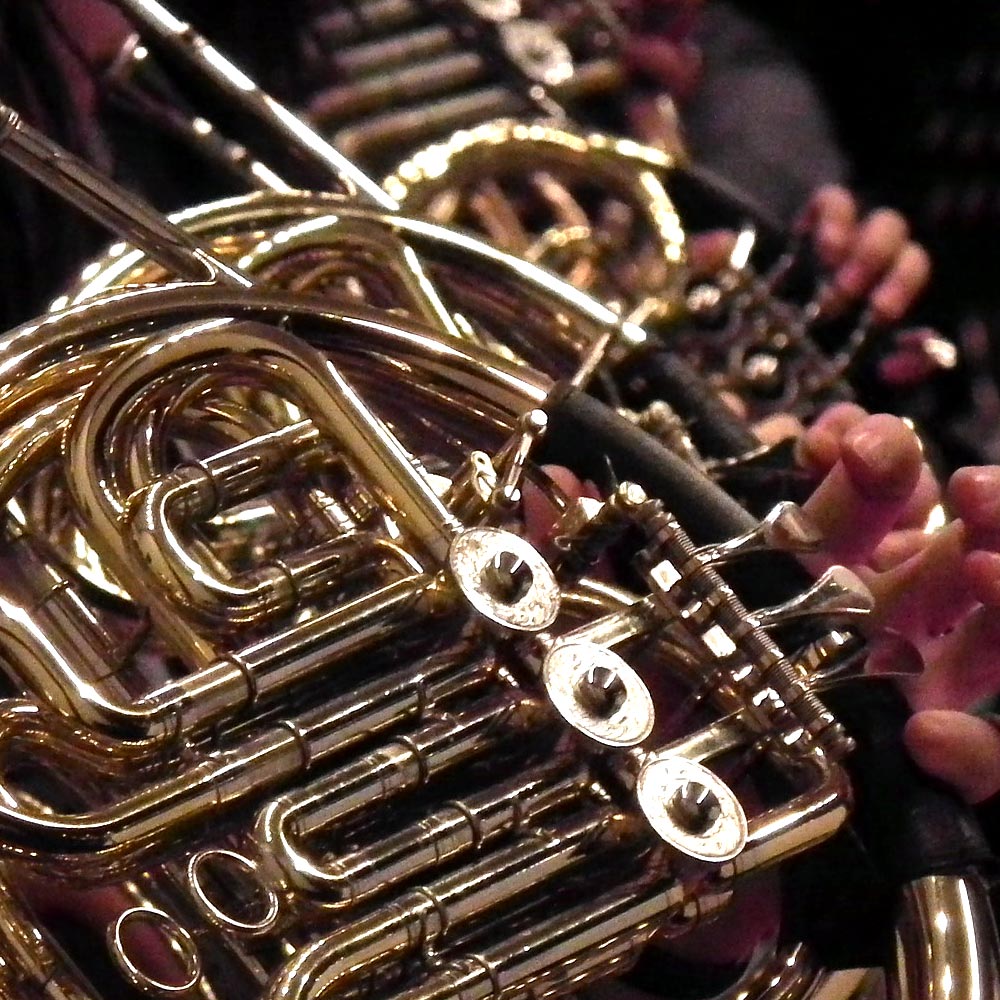
Brass Instrument Repair
French Horn Repair
One of the most common reasons a French horn is brought into the shop is for broken solder joints. This can be challenging to find given the meandering maze of slide tubing. Hearing a buzzing sound while playing is a good indication that somewhere on the horn, a solder joint has broken. Once our technicians locate the broken joint, we will carefully solder it back together, leaving not a trace of burnt lacquer or blobs of solder.
Sluggish or sticky rotary valves are a common problem for French horns. Eventually, oils within the rotor valve dissipate and the acidity in the moist air that is blown through instrument causes corrosion to form on the surface of the valve and casing. This of course is natural but will affect how freely the rotor spins at a certain point. An ultrasonic cleaning is the best solution and will leave your valves clean and smooth, and most importantly, spinning freely in the instrument.
Typically on French horns, rotary valves are actuated by string. These strings over time can become dry rotted and frayed. They can also become loose which can cause a catch in the finger lever. At Brass Monkey Music, we replace all rotor strings that show signs of wear and level the finger levers, so they feel comfortable and look straight on the instrument. The valves are also checked for alignment by lining up witness marks on the back of the bearing plate and cutting rubber stop arm bumpers to fit precisely. We even offer different material to use in replacing stop arm bumpers to accomodate different needs: cork, rubber, silicone, and synthetic foam.
Dents on a French horn are challenging in their own way. The tight radius and small diameter of tubing make some dents very hard to reach. Occasionally, parts of the horn need to be disassembled and unsoldered just to reach those dents. We have the skills and finesse at Brass Monkey Music to remove hard to reach dents and reassemble the horn to make it look as though nothing ever happened in the first place.